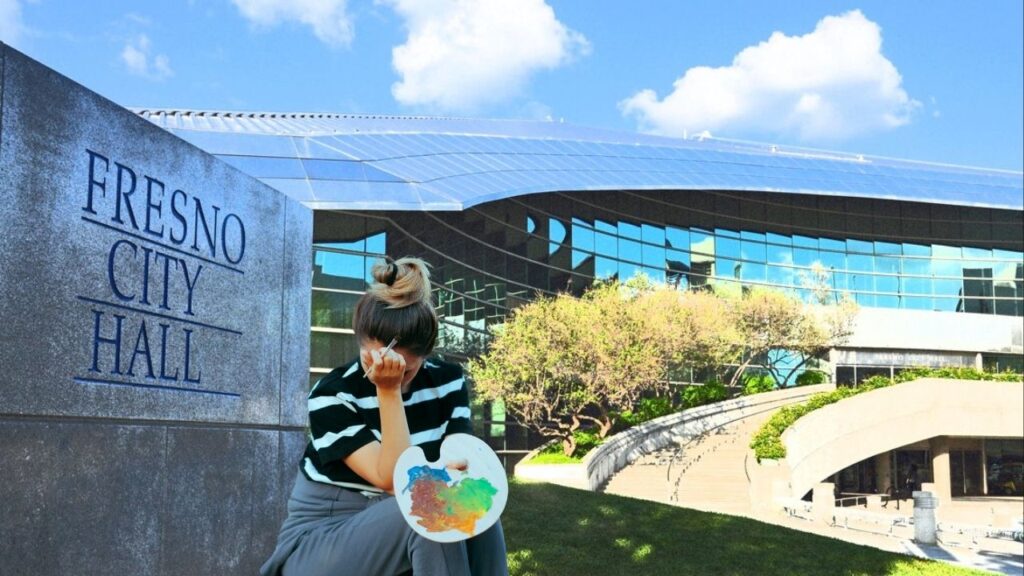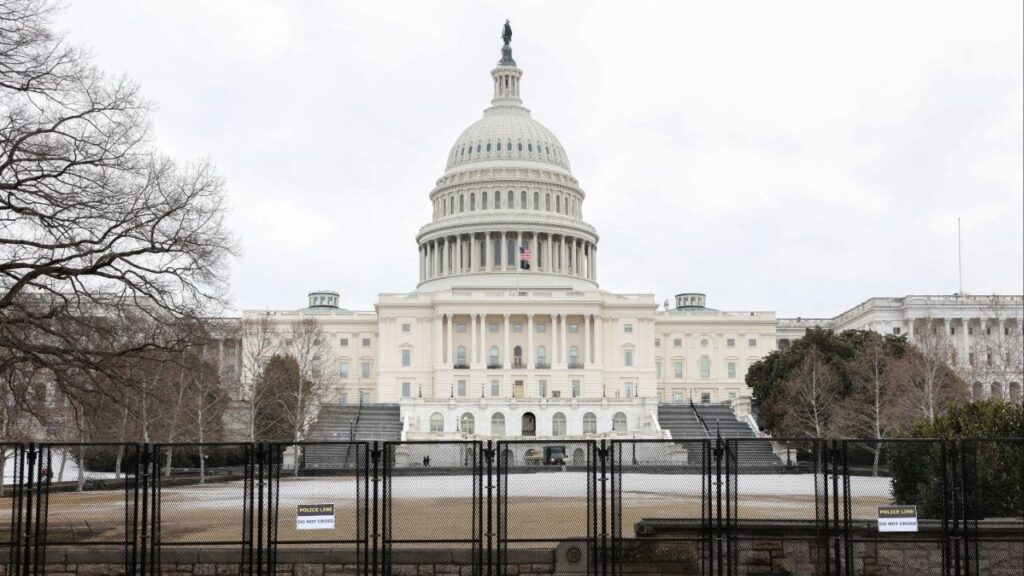Share
As bills that take aim at plastic waste make their way through California’s legislature, the damage they intend to fix already is rippling through the state’s recycling economy.
On Monday, rePlanet, a major collector of beverage bottles and cans, shut its 284 collection centers in California, citing lower subsidies from the state as well as challenges facing recyclers and municipalities across California: higher operating costs and dwindling returns from post-consumer recyclables.

By Rachel Becker
CALmatters
Two of the bills, authored by Democrats Lorena Gonzalez in the Assembly and Ben Allen in the Senate, are identical and would require manufacturers to reduce waste from packaging and certain plastic products. The other, by Assemblyman Phil Ting, calls on manufacturers to increase the minimum recycled content in plastic beverage bottles over the next decade.
All of the bills have cleared their houses of origin and their authors say they are cautiously optimistic they will pass in the Democratic-controlled Assembly and Senate. They still face pushback, however, on their way to the governor’s desk, notably from a new and secretive coalition called Californians for Recycling and the Environment that is encouraging the public to tell legislators to vote no on Sen. Allen’s bill, SB 54.
The coalition represents the packaging industry and officially formed “maybe a few weeks ago,” according to spokesman Micah Grant. Despite its effort to kill at least one of the bills, Grant insisted in an email to CalMatters that the group “doesn’t ‘oppose’ SB 54.”
As the votes near on each of the three bills, industry groups listed as opposition to the twin bills in the Assembly and Senate—including the American Chemistry Council, the Grocery Manufacturers’ Association, and the powerful American Beverage Association—say they’re not trying to kill the legislation. They just want to see changes.
The bills come as California’s recycling industry is trying to adjust to recent upheaval in the international recycling markets. Historically, California has exported about a third of its recycling, including about two-thirds of recycling in the blue bins—with a big chunk going to China, according to estimates from CalRecycle, California’s Department of Resources Recycling and Recovery.
China’s decision to tighten contamination standards and clamp down on imports of materials such as unsorted paper and certain grades of plastics means a major market has been lost to California. On top of that, CalRecycle warned in a recent report that a surge of investments in plastic manufacturing could “undercut prices for recovered plastics.”
For Recology, an employee-owned recycler serving more than a dozen California counties, the market for plastic bags and clear packaging films was never particularly strong. The upheaval, however, means the scraps of plastic wrappings and bags that once left the facility as contaminants in bales of paper now end up in the local landfill, according to Eric Potashner, Recology’s vice president and senior director of strategic affairs.
“It’s the option of last resort, and that’s where we are right now as an industry,” Potashner said. He’d prefer that manufacturers stop making as much material that will inevitably end up in a landfill. “Either create a market for it or make something else,” he said.

Skin in the Game
It comes down to the difference between recyclable, and recycled, Potashner said. Items aren’t recyclable just because they end up in the blue bin; there has to be someone who wants to buy recycled materials and turn them into something new. Right now, that’s only rarely the case for packaging and food materials, he said.
Ricardo Lopez, the manager of GreenWaste Recovery’s recycling facility in San Jose, said he’s had somewhat better luck finding a home for mixed food containers and clear packaging films. “The market’s hit or miss,” he said. “You have to dangle other items at a cheaper rate for them in order to take certain other items, to put you ahead of other competitors.” That could mean selling bales of detergent bottles at a better rate if a buyer also takes bales of film, for example.
“The one group that doesn’t have skin in this game right now is the one we need most, which is the manufacturers and the retailers that are putting the product in the waste stream in the first place,” Potashner said.
As written, the Act requires manufacturers to make all single-use packaging and the ten most-littered single-use plastics out of recyclable or compostable materials by the year 2030. It also sets targets for increasing recycling of plastic packaging and certain single-use plastic products over the next decade, reaching a 75 percent recycling rate in 2030. If manufacturers don’t hit those recycling rate targets, they could be barred from selling the packaging or single-use products in California.
“That’s a pretty big deal,” said Allen, a Democrat from Santa Monica and an author of the Act. “If you can’t sell, you don’t have access to the market. And it’s the fifth largest economy in the world on its own.”
There’s a lot the Act leaves to CalRecycle to figure out. It doesn’t, for instance, spell out which ten single-use plastics would be covered. And it doesn’t address whether the state’s recycling infrastructure needs to be improved, or what exactly CalRecycle has the authority to change, according to Julia Stein, Project Director for the Emmett Institute on Climate Change and the Environment at UCLA School of Law. “That’s one of those question marks for me in the legislation: how’s that issue going to get resolved?” she said.
The idea is that the legislation lays the groundwork for CalRecycle to work out details alongside industry and other stakeholders as it develops a scoping plan. Until then, the plastic industry is particularly concerned about an enforcement power that is spelled out in the bill: a 2024 deadline to reach a 20 percent recycling rate, and the threat of being barred from selling in the state if they fail.
The new coalition, Californians for Recycling and the Environment, emphasizes potential bans on its website. It tells consumers the bills would “eliminate many products that families rely on for food, health, and well-being” such as toothpaste, and urges them to help the coalition “encourage the Legislature to pass a common-sense solution.”
Allen’s office told CalMatters that toothpaste isn’t a single-use product, although the packaging the tube comes in is, and would need to be recyclable or compostable. Allen said he intends any ban to be a last resort. The goal instead is for CalRecycle and manufacturers to work together to figure out how to meet the targets.
“The condition of sale clause does not mean that the second someone’s in non-compliance they will be barred from selling in the state of California,” he said. “This is not about punishing people. This is about nudging the market and manufacturers to create a more sustainable system.”
Yet Allen’s intent hasn’t placated opponents. Meghan Stasz, vice president of packaging and sustainability for the Grocery Manufacturers Association, said if that’s the intent, it should be written into the bill. And she argues that recycling rates aren’t something manufacturers can change. “We don’t have any control over consumer behavior, we don’t have any control over the recycling system,” she said.
Assemblywoman Gonzalez, a Democrat from San Diego and author of the Assembly’s version of the Act, is quick to enumerate the ways in which the plastic industry has control. “They can buy material back, or create ways to use the material they are already putting out,” she said in an email to CalMatters. “Consumers and recycling facilities are doing their part by sorting, it’s time for the plastics industry to step it up.”

Bottle It Up
The third bill in the state legislature, authored by Ting, a San Francisco Democrat, takes a more direct stab at changing the market for recyclables. As written, AB 792 requires manufacturers use sharply escalating percentages of recycled plastic in beverage bottles over the next decade. Targets start at 15 percent by the end of 2022 and rise to 75 percent in January 2030.
If manufacturers fail to reach the bill’s targets, they’ll be on the hook for a fine that varies depending on the degree of violation. The more they miss the target the bigger the fine, which could reach up to 2 cents per container for those who meet less than 15 percent of the requirement.
It’s not the first time a California lawmaker has tried to set minimum plastic requirements for beverage bottles. Sen. Bob Wieckowski, a Democrat from Fremont, tried to pass a similar bill in 2018 that didn’t survive the Assembly. Ting, whose new bill passed the Assembly and is now in the Senate, said the bill’s chances improved once China’s import restrictions on recycling went into effect. “We’ve seen how bad the situation is,” Ting said. “We see what people are doing when they’re not shipping it to China.”
It’s possible the closure of rePlanet’s beverage bottle recycling centers could put a dent in the plastic bottle supply. In 2016, when the company closed nearly 191 facilities, the recycling rate of beverage containers dropped from 81 to 80 percent, according to Lance Klug, a spokesman for CalRecycle.
Even if the supply drops, it doesn’t change the bigger economic problem. Mark Murray, executive director of the advocacy group Californians Against Waste, which supports the bills, pointed out the drop in scrap value for plastic bottles contributed to the recent rePlanet closures. “AB 792 is designed to increase demand for recycled plastic, which will increase scrap values, and revenue for the collection infrastructure,” he said.
Leon Farahnik, head of CarbonLite Industries, which turns post-consumer beverage bottles into food-grade resin that manufacturers can turn back into bottles, said he’s not concerned about an inadequate supply. He suspects that with stronger demand for plastic beverage bottles, collection will increase as well.
“We want to keep recycling alive if we can,” Farahnik said. While companies including Nestlé, Coca Cola, and Pepsi have pledged to increase the recycled content in their bottles, Farahnik thinks these changes should be required by law.
CarbonLite has invested more than $100 million in a Riverside plant, according to Farahnik. “Without certain mandatory requirements, the damage will be done to all the investments of millions,” said Farahnik. “With the mandate, it just makes recycling more of a major issue, and it assures the future of California’s recycling.”
An Appetite for Restrictions
Even if the bills die on their journey through the Capitol, it won’t necessarily be the end of plastics regulation. Proposed federal legislation may be introduced in the fall that would take aim at single-use plastics and boost recyclability of packaging and bottles. At the state level, Recology has floated the possibility of a ballot measure for the fall of 2020, should these bills fail.
“I think that the public has a pretty large appetite for significant restrictions on the plastics industry, and requiring them to take responsibility,” Potashner said. Californians are certainly concerned about plastic pollution: a recent poll from the Public Policy Institute of California found 72 percent of Californians called plastics and marine debris a big problem on their nearest beaches.
Gonzalez said the coast belongs to all Californians, and she’s hopeful the bill will see a successful vote this year. “But minus that, it’s not something you walk away from,” she said. “At some point, we have to be honest with ourselves, and say do we care enough about our planet and our kid’s future to do something about it?”
CalMatters.org is a nonprofit, nonpartisan media venture explaining California policies and politics.
RELATED TOPICS:
Categories

Fresno Police Search for Suspect After Stabbing Reported


















